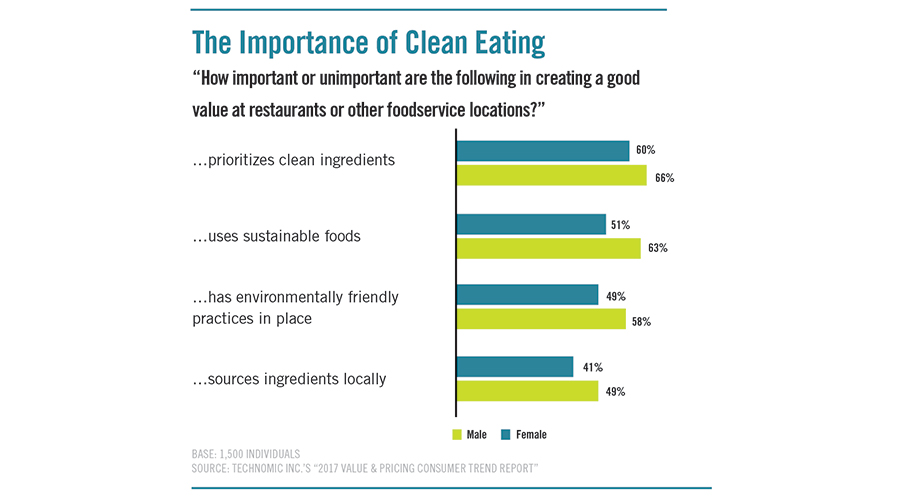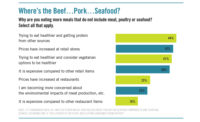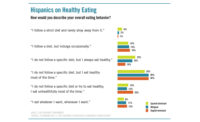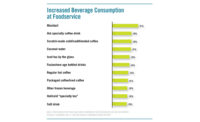Leveraging Sustainability’s Growing Value Proposition
Younger consumers are likely to place importance on environmentally friendly business practices

Getting good value when dining away from home remains top-of-mind for today’s consumer. But, as with just about everything else taking shape within the world of foodservice, the attributes that go into what makes up the value equation for consumers continues to evolve. While price, quality and portion size of course remain primary factors in this equation, new research from Technomic’s “2017 Value & Pricing Consumer Trend Report” shows that consumers are placing increasing importance on sustainability and social responsibility at the dining venues they visit.
So what’s driving this shift in the value equation? As we so often hear, millennials are willing to reward brands which they believe “do good” and act responsibly. Data from the report backs this up. Younger consumers are more likely than their older counterparts to place importance on environmentally friendly business practices, from commercial and noncommercial foodservice venues, as part of the overall value equation.
This includes not just socially conscious practices like using sustainable foods, but related efforts, such as offering clean menu items and locally sourced ingredients, as well. Some 57% of consumers (including 63% of women) say using sustainable foods is important for foodservice operators in creating good value.
That’s up from 52% of consumers who said that same thing in 2015. The report also found that 63% of consumers place great importance on clean ingredients, with a similar positive skew among women. More than half of consumers (53%) place high importance on environmentally friendly practices, and 45% on locally sourced ingredients.
So, what are operators doing to address these growing value attributes among consumers and win favor among younger consumers—who tend to reward the brands that they believe act responsibly? In January, Taco Bell announced new sustainability and clean menu goals. The chain plans to reduce its energy consumption and highlight more reclaimed materials and sustainable landscape features at its restaurants. On the menu side, it intends to reduce sodium and switch to sourcing 100% cage-free eggs. Earlier this year, McDonald’s released its “Global Beef Sustainability” report, which contains a goal to advance beef sustainability in part by sourcing beef from farms where primary forests and high-conservation-value lands are preserved. Given the data, both chains’ initiatives should help create consumer value by providing high-quality levels through both ingredients and environmental impact.
Restaurant and foodservice operators also are rethinking their marketing strategies to cater to growing interest in sustainability. Ted’s Montana Grill promotes its sustainability initiatives to consumers via its own magazine series, in-store postcards and social media channels. Foodservice operations unable to run such campaigns can shift their sustainability efforts to website messaging, in-store signage and menu callouts.
And operators can train front-of-house staff to highlight the use of sustainable ingredients when providing menu overviews. Clear and concise messaging is key for operators who wish to illustrate their sustainability efforts to consumers in ways that are engaging and meaningful. The rapid growth of sustainability has put both commercial and noncommercial foodservice operators in an interesting spot:
Adapt to new consumer demands around social responsibility and quality or lose appeal with guests. By incorporating various sustainable initiatives, from attaining locally sourced ingredients to eco friendly restrooms, foodservice operators can add significant value to their menu items and the overall establishment. And when done consistently with the right message in place, it will lead to more business and higher profits.
Originally appeared in the September, 2017 issue of Prepared Foods as Leveraging Sustainability’s Growing Value Proposition.
Looking for a reprint of this article?
From high-res PDFs to custom plaques, order your copy today!







